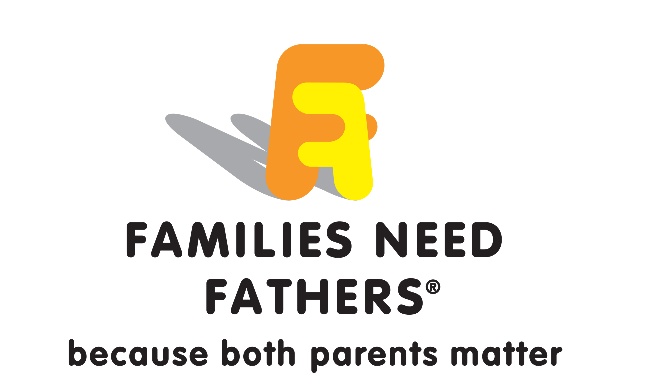Is the future 50:50?
With a new Cross-Party Group on Shared Parenting launched this year, and the government’s consultation on family law due soon, Ian Maxwell puts the case for change and suggests how it could benefit Scottish children
When looking for ideas on how to improve children’s welfare, Scotland’s politicians regularly look at other countries’ approaches, and take inspiration from Scandinavian countries in particular, where the importance of parental leave, play and outdoor learning are recognised. Most recently, for example, the Finnish baby box idea was adopted in Scotland. Political leaders here also seem increasingly willing to use the law to bring about social change in areas such as alcohol consumption and smacking.
The Scottish Government is about to launch a comprehensive review of Scottish family law, recognising that family life has evolved considerably since the 1995 Children (Scotland) Act.
On the economic side, women’s participation in the workplace has never been higher. The number of households in which the woman is the higher earner is also rising, affecting the pragmatic decision about who should be the stay-at-home parent.
On the cultural side, more men than ever are present at the birth of their children and they are expected and encouraged thenceforward to be hands on parents.
Politically, there is endorsement of these changes as being good in themselves in addition to their economic desirability.
However, nearly half of the Scottish babies who now start life with a well-stocked baby box are likely to experience separation of their parents at some point during their childhood. And when a relationship founders the legal presumptions tend to revert to the old paradigms.
In many separated families in Scotland, and children or dependents involved become the sole or main care of one parent, usually the mother. Fathers who previously played as full a part as they could in parenting their children can suddenly find themselves battling for time with them as a visitor. This is bad, I would argue, for everyone concerned.
Although successive Holyrood administrations have loved to claim that our wee nation is ‘world-leading’ in many areas of policy, in family law it is a long way behind.
So at this early stage in the family law review process I urge political leaders and opinion formers alike to look up from the way it has “always been” in Scotland and recognise how the tide is flowing in favour of ‘shared parenting’ in similar advanced economies around the world.
From Sweden we have strong research evidence that shared parenting either in intact families or after separation is better on a range of measures of wellbeing for children. Shared parenting (50:50 joint physical custody) has grown from 2% in 1984 to 35% in 2013. Data from the child supplement of the annual Swedish Living Survey from January 2017 showed that for children aged 10-18, most measures of wellbeing were similar for children with shared residence after separation and those still living with two parents in the same household, whereas outcomes were measurably worse for children living solely or mostly with one parent. For example, children living with one parent were significantly more likely to report experiencing health problems, more psychosomatic complaints, and more stress than children in shared care or living with two parents.
In 60 studies from around the world recently reviewed by Professor Linda Nielsenof Wake Forest University, North Carolina, 34 showed that children in joint physical custody (more than 35% of time with each parent) had better outcomes than children in sole physical custody on all the measures of behavioural, emotional, physical and academic wellbeing. They also had better relationship with parents and grandparents.
Shared care is often dismissed as not working for parents in poorer situations or where conflict levels are high, but Nielsen’s meta-analysis found better outcomes for children independent of household income or conflict.
In Sweden old gender stereotypes have been eroded. There is now an expectation that both parents share parenting throughout their child’s life. Eyebrows are raised in mothers’ groups and fathers’ groups alike when one of their members isn’t sharing. Dr Bergström quotes one mother from her research who said, "Why should they live more with one of us when they are children to us both?"
But legislators should be aware that the expansion of shared parenting needs more than fine words and wishful thinking. Even in Sweden it didn’t happen by itself. This shift in family structure has resulted from building in positive incentives and tackling the disincentives over several decades.
Sweden has had far better parental leave and comprehensive childcare provision since the 1970s. In Scotland there are active disincentives to shared parenting that need to be addressed, such as the systems of child support and child benefit. Employers have to be on board too, accepting that both parents have obligations to their children.
In Belgium, where family law changed in 2006 to include a rebuttable presumption of shared parenting, the percentage of children spending at least 33% of time with each parent has risen from less than 10% to more than 40%.
A “rebuttable presumption” of shared care means that if separated parents have to go to court because they can’t agree about arrangements for time with their children, the judge‘s starting point will be an equal split of time with each parent. Both parents can advance reasons why the time share should be different. Starting from this point wastes less time, money and emotion on the petty attacks by each parent on the character or competence of the other that characterises so many cases in the “winner takes all” approach of the current adversarial system in Scotland.
Simply changing the law alone can’t force every separating couple to practice shared parenting. For some it isn’t practicable or desirable for the children for a range of reasons, but experience from an increasing number of countries and many states in the USA shows that it can make a significant difference to parenting patterns for the majority.
The existing family law in Scotland has no such presumption, which means that sheriffs have tended to opt for the more cautious “every second weekend and half the holidays” approach. One sheriff stated in a judgement last year that “even with the greatest degree of co-operation between parties it [shared parenting] can rarely, if ever be sustained”.
We know from our own casework and from evidence in other countries that his sweeping pessimism is not justified.Many Scottish sheriffs are more positive towards shared parenting, and many examples do exist of successful shared parenting in Scotland.
As Scotland begins its national consultation on family law reform in the coming months, we will urge legislators to consider inserting a rebuttable presumption of shared parenting into the law. It would give a clear lead to the judiciary without removing their independence to make whatever order is best for the children.
Inserting shared care as a standard starting point sets a norm. Even for those who don’t end up in court we believe a change in the language of the law will encourage parents to focus their attention on their children rather than their own grievances with each other.
And for those whose parents separate even before birth, perhaps the Scottish Government should think about providing two baby boxes!
Ian Maxwell is National Manager of Families Need Fathers Scotland: Both Parents Matter.
This comment piece first appeared in Children in Scotland Magazine, issue 185 (April-May 2018)
Children in Scotland response
Mindful that child custody is a hugely emotive and complex issue, we plan to explore the following points in a future issue of Children in Scoltand Magazine:
- Welfare of the child must remain paramount. Any changes to family law must ensure the needs and best interests of the child are the basis upon which decisions are taken
- Children have the right to a safe and loving home. This may involve one, both or neither biological parent
- The role of courts. The reason some separated parents parent well together is the joint decision to put their child first. Courts can’t order good behaviour only compliance. Is court mandated behaviour really the answer?

What do you think?
Join the conversation and tell us what you think on social media - @cisweb #CiSMagazine
Share your thoughts
Families Need Fathers
Families Need Fathers Scotland is registered Scottish charity. Find out more about what they do.
Visit their website